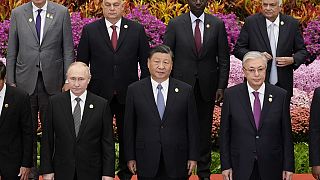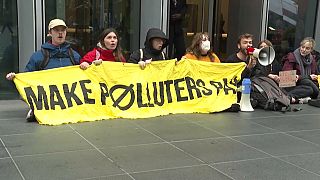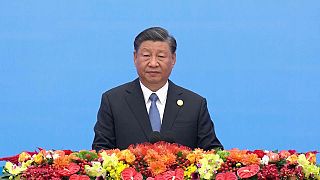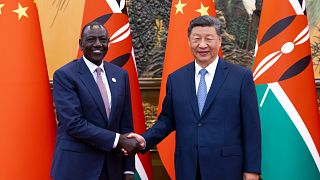China
In Beijing this week, the tenth-year milestone of China's Belt and Road Initiative (BRI) will be marked at a forum that highlights this often-debated model for economic development.
Large signs reading "The Third Belt and Road Forum for International Cooperation" are displayed next to a bustling Beijing road. The previous forums convened in 2017 and 2019.
This program, championed by China's President Xi Jinping, has provided funding for numerous global infrastructure projects, including ports, power plants, and railways. Nevertheless, the initiative has received criticism for its approach to providing loans to developing nations, which often results in them incurring substantial debt.
Wang Yiwei, the Director of the Institute of International Affairs at China's Renmin University, asserts that BRI encourages a collaborative approach to development with partner nations, providing them with paths to modernization.
Recent events, such as the construction of Southeast Asia's first high-speed railway in Indonesia, which commenced earlier this month, underscore the mixed reception BRI has encountered. While this 142-kilometer railway significantly reduces travel time between Jakarta and Bandung, it was marred by delays and escalating costs. Originally expected to launch in 2019, disputes over land acquisition, environmental concerns, and the COVID-19 pandemic postponed the project. Furthermore, the estimated cost of 66.7 trillion rupiah ($4.3 billion USD) ballooned to 113 trillion rupiah ($7.3 billion USD).
Similarly, the $5.9 billion Chinese-built railway linking Laos' capital, Vientiane, to the southern Chinese city of Kunming began operations in 2021, with over 60% of the investment being borrowed – an unusually high percentage for an infrastructure project, according to foreign experts. This has led to the initiative being perceived by some as a "debt trap."
Chinese contractors are also constructing a high-speed rail line from Bangkok to the Laos border, expected to be operational by 2028.
An example of a debt issue emerged earlier this year when a power plant in Jordan, once touted as a groundbreaking project to provide the country with a significant energy source, turned sour. Jordan now finds itself in an international legal battle and billions of dollars in debt to China for a plant that is no longer necessary for its energy needs, due to subsequent agreements made since the project's inception.
A "risk prevention" approach will be critical for the future of the Belt and Road Initiative, given the growing complications in a world marked by ongoing conflicts.
The Belt and Road Initiative Forum is scheduled to commence on October 18.













00:53
Brazil eyes global food leadership amid U.S.-China trade tensions
00:58
Senegal: MP Proposes High Treason Charges Against Former President Macky Sall
00:46
China and Republic of Congo strengthen ties at FOCAC meeting
04:35
IMF approves $1.2 billion more for Egypt's economic recovery
03:22
China slams US tariffs, says economy is resilient
04:49
African leaders create fund to provide cheaper debt